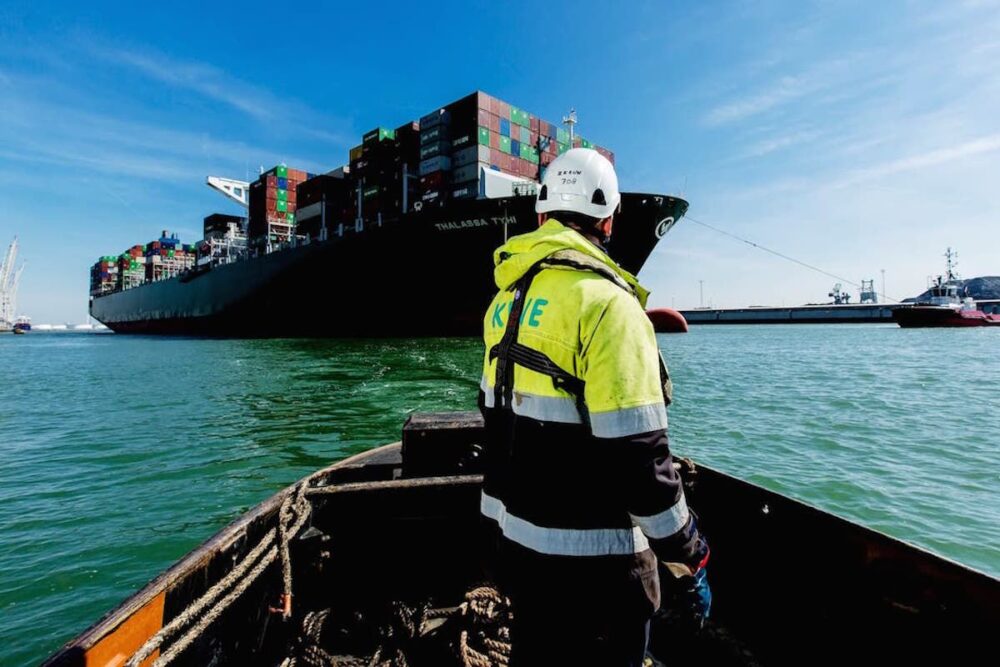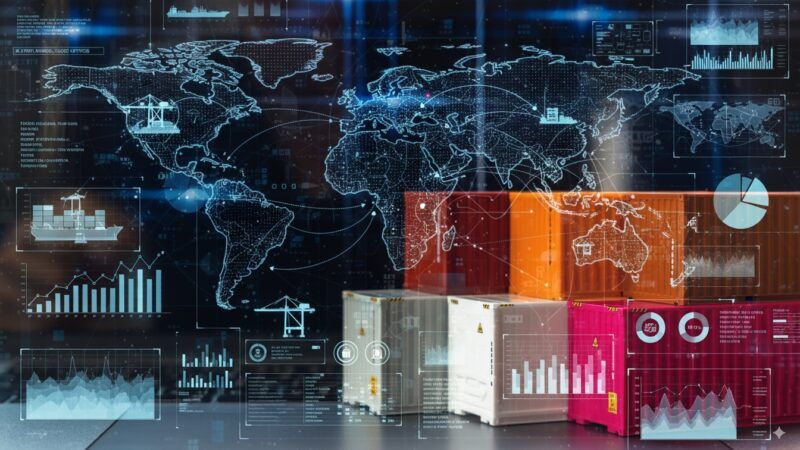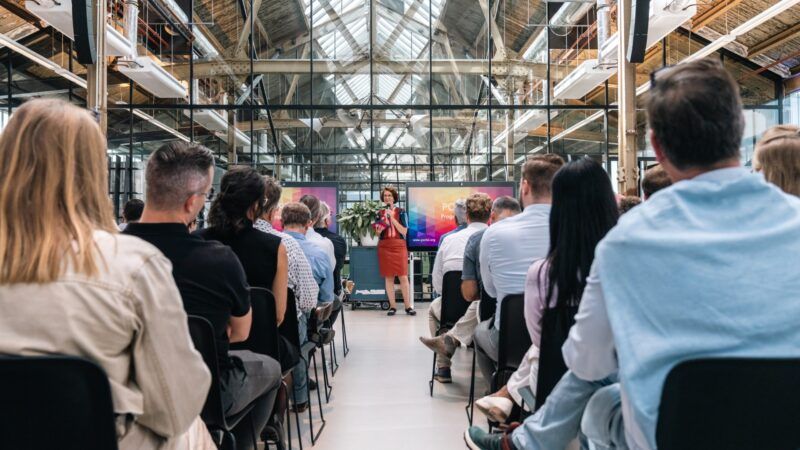 Port of Rotterdam worker [Image by Port of Rotterdam]
Port of Rotterdam worker [Image by Port of Rotterdam]
Social innovation and human capital in the port setting
Today, in order to ensure a prosperous evolution in a port setting or anywhere else, it is essential to bear in mind not only what has to be done to be successful but how to achieve it. That is, how is equal to what, particularly taking the social perspective into consideration.

Francesc Bonada is Head of corporate development at Port de Barcelona.
 Port of Rotterdam worker [Image by Port of Rotterdam]
Port of Rotterdam worker [Image by Port of Rotterdam]
Before examining social innovation and human capital in the port setting, it is essential to define each term. By human capital we mean the set of knowledge, habits and social and personality attributes which coalesce in the ability to do work that produces value.
The definition of social innovation is up for grabs, since the scholarly community has not yet reached agreement on a single meaning. Despite this, the Port of Barcelona defines social innovation as a new way of interacting, organising and managing in order to successfully deal with the challenges facing the city’s port community via strategies which take the needs of all stakeholders into account.
The importance of human capital and social innovation in the Port of Barcelona
So why are people talking about human capital and social innovation now? The port setting being in constant evolution is nothing new. As Heraclitus said many centuries ago, “Nothing is permanent but change”. However, what is new is the speed of this change. There have always been crises and there always will be, but now they happen more often. For this reason, it is extraordinarily important that the people in the port community, and their knowledge, habits and social attributes, can perform under these circumstances of accelerated change.
![Warehouse of the Port de Barcelona. [Image by Port de Barcelona]](https://piernext.portdebarcelona.cat/wp-content/uploads/2019/08/Human-capital3.png)
The second reason why this is so important is that this new environment challenges us in different ways. Now, not only must we bear in mind what has to be done to be successful, but how to achieve it is as important as the objective itself. Here is where the social perspective is particularly important; it would be incoherent with a social perspective if the proposed solution only benefits a few or is only satisfactory for some of the stakeholders.
Thus, challenges must be dealt with systemically, meaning that the actors, both the port community and its stakeholders, are not only interdependent but furthermore are not cut off from the planet and its needs and challenges. From this new perspective, proposals are constructed by co-creating and cooperating with the goal of finding solutions that work for everyone. What good is it for the port community to develop and grow if it comes at the expense of the environment or the system which it is part of, and the planet in general?
To conclude, we can cite studies that show that social innovation explains 75% of the success of companies’ innovation processes (Birkinshaw et al., 2008; Hamel, 2006; Volberda et al., 2013) and that innovation is crucial in the development of port communities.
The applicability of social innovation
What makes things change is putting into practice projects and initiatives that seek to develop human capital and social innovation. How can we make these concepts tangible realities? As the philosopher Diogenes said, “Motion is shown by walking”, and in order to walk in the right direction it is useful to have avenues of action that make initiatives meaningful, such as:
- Promoting jobs and employability by encouraging interaction between companies and education.
- Facilitating innovation with appropriate facilities.
- Promoting lifelong training at work.
- Encouraging co-creation with spaces of interaction between stakeholders and the port community.
- Developing new competences, both technical and interactive.
Not only must we bear in mind what has to be done to be successful, but how to achieve it is as important as the objective itself. Here is where the social perspective is particularly important.
There are currently projects and initiatives at the Port of Barcelona which exemplify the positive steps being taken in favour of human capital and social innovation in Catalonia, including Barcelona Tech City, PierNext, SmartCatalonia Challenge, OpenPort programme, Fondo Puertos 4.0 and Forma't al Port, among others.
International working group: Human Capital Agenda for Ports
The initiative to create a working group sprang up alongside the Port of Rotterdam; the goal is for 11 ports from all over the world to work together and share experiences in order to define a joint world agenda to develop human capital and social innovation. Le Havre (France), Barcelona (Spain), Sohar (Oman), New York - New Jersey (United States), Assoporti (Italy), Vancouver (Canada), Riga (Latvia), Singapore, Los Angeles (United States), Busan (South Korea) and Rotterdam (Holland) are the ports in this union.
The first meeting of this working group was held in Rotterdam in January 2019, and further meetings have been scheduled to develop the agenda and share advances. Even though these ports are very different in terms of their culture and circumstances, they all share the same interests, and many of them are grappling with similar issues. Thus, this working group materializes this paradigm of cooperation and co-creation to generate initiatives and conditions that develop ports in their spheres of action.
![Rotterdam port workers. [Image by Port of Rotterdam]](https://piernext.portdebarcelona.cat/wp-content/uploads/2019/08/Rotterdam2.jpg)
The role of the Port Authority of Barcelona: To facilitate, trigger and bring together
The development of this agenda should be the outcome of cooperation among all the stakeholders. The question is: What should the role of the Port Authority be? We should focus on three aspects:
First, we must act as facilitators and create the proper conditions for human capital and social innovation to develop. This takes shape in initiatives and projects framed within the avenues of action mentioned above. Secondly, facilitating may not be enough, so it is also important to act as triggers of these innovation and change processes by undertaking actions that spark the desire to innovate and co-create.
Finally, the Port Authority can bring parties together, first because of the possibilities afforded by its role as it interacts and exerts an influence on many of the stakeholders, and secondly because it has a global vision of the challenges and opportunities facing the port community. Furthermore, it can create trusting relationships based on win-win strategies and innovatively manage the conflicts that arise in any community.
In short, social innovation and human capital are key factors in the development of ports. It is essential to establish an agenda and carry out a plan to ensure a prosperous future in harmony with the needs of its stakeholders and the planet as a whole. And all of this must be done in a cooperative way because ensuring a sustainable future is at stake.





